Blade Runner, directed by Ridley Scott and based on Philip K. Dick's novel, is a dystopian science fiction film set in 2019 Los Angeles. It follows Rick Deckard, a 'blade runner,' tasked with hunting down rogue replicants – bio-engineered synthetic humans created by the Tyrell Corporation for off-world labor. Led by Roy Batty, these advanced replicants seek to extend their limited lifespans. The film explores themes of humanity, artificial intelligence, and the consequences of technological advancement as Deckard confronts the replicants and questions his own identity.
1968: Interest in Adapting Do Androids Dream of Electric Sheep?
Shortly after the publication of Philip K. Dick's novel Do Androids Dream of Electric Sheep? in 1968, there was immediate interest in adapting it for film, including interest from Martin Scorsese.

1974: William S. Burrough's treatment of "The Bladerunner (a movie)"
In 1974, William S. Burrough's created a cinema treatment for Alan E. Nourse’s novel The Bladerunner (a movie). Ridley Scott liked the name, so Deeley obtained the rights to the titles.
1977: Star Wars
Alan Ladd Jr.'s previous highest-grossing films (Star Wars) had a similar opening date (May 25) in 1977, making the 25th of the month his "lucky day".
1977: Screenplay Optioned
In 1977, the screenplay by Hampton Fancher was optioned, marking the beginning of the adaptation process for Blade Runner.
1979: Alien
Alan Ladd Jr.'s previous highest-grossing films (Alien) had a similar opening date (May 25) in 1979, making the 25th of the month his "lucky day".
February 21, 1980: Ridley Scott Joins the Project
On February 21, 1980, Ridley Scott joined the Blade Runner project as director after leaving the production of Dune, securing increased financing for the film.
December 21, 1980: Fancher Leaves Script Rewrites
On December 21, 1980, Hampton Fancher left the job over the issue of script rewrites, with David Peoples hired to rewrite the script. Fancher later returned to contribute additional rewrites.
March 9, 1981: Principal Photography Begins
Principal photography of Blade Runner began on March 9, 1981, and concluded four months later.
May 1982: San Diego Sneak Preview
In May 1982, a sneak preview of Blade Runner was shown in San Diego. This version was almost identical to the U.S. theatrical version but included three extra scenes not shown in any other version, including the 2007 final cut.
June 25, 1982: Blade Runner Released in Theaters
Blade Runner was released in 1,290 theaters on June 25, 1982, chosen as the producer's "lucky day". The film grossed $6.1 million during its opening weekend.
September 1982: Publication of Comic Book Adaptation
In September 1982, A Marvel Comics Super Special: Blade Runner, a comic book adaptation scripted by Archie Goodwin and illustrated by various artists, was published.
1982: Initial Critical Reception and Soundtrack Nomination
In 1982, Blade Runner initially underperformed in North American theaters and polarized critics. However, the film's soundtrack, composed by Vangelis, was nominated for a BAFTA and a Golden Globe as best original score.
1982: Theatrical Release of Two Versions
In 1982, Blade Runner was theatrically released with two versions: the U.S. theatrical version (Domestic Cut) and the International Cut, also known as the "Criterion Edition".
1982: Blade Runner Film Release
In 1982, Blade Runner, a science fiction film directed by Ridley Scott, was released. It stars Harrison Ford, Rutger Hauer, Sean Young, and Edward James Olmos, and is based on Philip K. Dick's novel. The film is set in Los Angeles of 2019, where Rick Deckard hunts down replicants.
1982: Bootleg Tape Surfaces
In 1982, a bootleg tape of the Blade Runner soundtrack surfaced at science fiction conventions, gaining popularity due to the delayed official release.
1982: Soundtrack Nomination and Initial Delay
In 1982, the soundtrack for Blade Runner was nominated for a BAFTA and a Golden Globe as best original score. However, the official soundtrack recording was delayed for over a decade.
1983: U.S. Theatrical Version Release on Home Video Formats
In 1983, the U.S. theatrical version of Blade Runner was released on Betamax, CED Videodisc, and VHS.
1985: Release of Blade Runner Video Game by CRL Group PLC
In 1985, CRL Group PLC released Blade Runner, a side-scrolling video game for Commodore 64, ZX Spectrum, and Amstrad CPC. This version was an interpretation of the Vangelis film score due to licensing issues.
1987: U.S. Theatrical Version Release on LaserDisc
In 1987, the U.S. theatrical version of Blade Runner was released on LaserDisc.
1989: Film tracks surface on Vangelis: Themes
In 1989, some of the film tracks would surface on the compilation Vangelis: Themes, but not until the 1992 release of the Director's Cut version would a substantial amount of the film's score see commercial release.
May 1990: Workprint Shown at Fairfax Theater
In May 1990, the workprint of Blade Runner was shown as a director's cut without Ridley Scott's approval at the Los Angeles Fairfax Theater.
April 1991: Workprint Shown at AMPAS
In April 1991, the workprint of Blade Runner was shown at an AMPAS showing.
October 1991: Workprint Shown at Nuart and Castro Theatres
In October 1991, the workprint of Blade Runner was shown at the Los Angeles Nuart Theatre and the San Francisco Castro Theatre. Positive responses pushed the studio to approve work on an official director's cut.
1992: Ford Reveals Dislike for the Film
In 1992, Harrison Ford revealed that Blade Runner is not one of his favorite films, citing friction with Ridley Scott and disliking the voiceovers which were written by Roland Kibbee.
1992: Release of Ridley Scott's Director's Cut
In 1992, Ridley Scott's Director's Cut of Blade Runner, running at 116 minutes, was released. This version included significant changes, such as the removal of Deckard's voice-over, the re-insertion of the unicorn dream sequence, and the removal of the studio-imposed happy ending.
1992: Release of the Director's Cut
In 1992, a director's cut of Blade Runner was released after positive test screenings of a workprint, becoming one of the earliest films to be released on DVD.
1992: Commercial Release of the Film's Score
In 1992, a substantial amount of the film's score saw commercial release with the release of the Director's Cut version.
1992: International Cut Re-release as 10th Anniversary Edition
In 1992, the International Cut of Blade Runner was re-released as a "10th Anniversary Edition".
1993: Off World Music, Ltd Bootleg CD
In 1993, "Off World Music, Ltd" created a bootleg CD that would prove more comprehensive than Vangelis' official CD in 1994.
1993: Selection for Preservation in the National Film Registry
In 1993, Blade Runner was selected for preservation in the National Film Registry by the Library of Congress, recognizing its cultural, historical, and aesthetic significance.
1993: Selection for National Film Registry
In 1993, Blade Runner was selected for preservation in the United States National Film Registry.
1995: Publication of Blade Runner 2: The Edge of Human
In 1995, K. W. Jeter published Blade Runner 2: The Edge of Human, one of three authorized Blade Runner novels continuing Rick Deckard's story.
1996: Publication of Blade Runner 3: Replicant Night
In 1996, K. W. Jeter published Blade Runner 3: Replicant Night, one of three authorized Blade Runner novels continuing Rick Deckard's story.
1996: Publication of Future Noir: The Making of Blade Runner
In 1996, Paul M. Sammon's Future Noir: The Making of Blade Runner was published, dissecting the details of the film's production.
1997: Release of Blade Runner Video Game by Westwood Studios
In 1997, Westwood Studios released Blade Runner, a point-and-click adventure game for PC with a non-linear plot and non-player characters running on independent AI.
1998: Release of Soldier
In 1998, David Peoples, co-writer of Blade Runner, released the action film Soldier, considering it a spiritual successor to Blade Runner set in a shared universe.
2000: Ford's Reflection on Scott
In 2000, Harrison Ford stated that he admires Ridley Scott's work and that he is over the bad patch they had during the production of Blade Runner.
2000: Publication of Blade Runner 4: Eye and Talon
In 2000, K. W. Jeter published Blade Runner 4: Eye and Talon, one of three authorized Blade Runner novels continuing Rick Deckard's story.
2001: Hauer's comments on Blade Runner
In a live chat in 2001, Rutger Hauer talked about Blade Runner, stating that Blade Runner needs no explanation and there is nothing like it. To be part of a real masterpiece which changed the world's thinking is awesome.
2002: Ridley Scott's Interview with The Observer
In 2002, Ridley Scott described Blade Runner as "extremely dark, both literally and metaphorically, with an oddly masochistic feel" in an interview with The Observer. He also mentioned exploring pain in the wake of his brother's death.
2003: Voight-Kampff test
In 2003 a magazine created an approximation of the Voight-Kampff test and used it in jest on the candidates in the 2003 election for Mayor of San Francisco, concluding that at least half of them would be classified as replicants.
2004: Voted Best Science Fiction Film
In 2004, Blade Runner was voted the best science fiction film ever made in a poll of 60 eminent world scientists.
2006: Scott Comments on Working with Ford
In 2006, Ridley Scott described Harrison Ford as the "biggest pain in the arse" he'd ever worked with, acknowledging their difficult relationship during filming but noting that they now get along well.
October 5, 2007: Theatrical Release of The Final Cut
On October 5, 2007, Warner Bros. released Ridley Scott's definitive version, The Final Cut, theatrically. This version marked the only one over which Scott had complete artistic and editorial control.
December 2007: Home Video Release of The Final Cut
In December 2007, The Final Cut of Blade Runner was released on DVD, HD DVD, and Blu-ray Disc.
2007: Named Second-Most Visually Influential Film
In 2007, Blade Runner was named the second-most visually influential film of all time by the Visual Effects Society.
2007: Release of The Final Cut
In 2007, Warner Bros. released The Final Cut, a 25th-anniversary digitally remastered version of Blade Runner over which Ridley Scott retained artistic control.
2007: Second Edition of Future Noir Published
In 2007, a second edition of Future Noir: The Making of Blade Runner was published, with additional materials published online.
2007: Release of Blade Runner Trilogy
In 2007, a set with three CDs of Blade Runner-related Vangelis music was released. Titled Blade Runner Trilogy, the first disc contains the same tracks as the 1994 official soundtrack release, the second features previously unreleased music from the film, and the third disc is all newly composed music from Vangelis, inspired by, and in the spirit of the film.
2007: Ford Contributes to Special Edition DVD
In the summer of 2007, Ridley Scott confirmed that Harrison Ford had contributed to the Blade Runner Special Edition DVD and recorded his interviews for it, signifying a reconciliation between them.
2007: Inclusion of scenes in final cut
The 2007 final cut of Blade Runner included three extra scenes that were previously shown in the May 1982 San Diego sneak preview but were not included in any other version.
2009: Release of I, Human Album by Deus Ex Machina
In 2009, the album I, Human by Singaporean band Deus Ex Machina was released, featuring references to Blade Runner's genetic engineering and cloning themes, including a track titled "Replicant".
2012: Richard Corliss Analyzes Blade Runner
In 2012, Time film critic Richard Corliss analyzed the durability, complexity, screenplay, sets, and production dynamics of Blade Runner from a personal, three-decade perspective.
2012: Prometheus Blu-ray Release with Blade Runner Connection
In 2012, a bonus feature on the Blu-ray release of Prometheus, a film by Scott set in the Alien universe, revealed that Eldon Tyrell of the Blade Runner Tyrell Corporation was the mentor of Peter Weyland.
2012: Release of the Cypher Adventure Game
In 2012, the graphical text adventure game Cypher was released, showing Blade Runner's influence.
2016: Blade Runner 2049 production start
In mid-2016, production began on Blade Runner 2049, set decades after the first film, with Harrison Ford reprising his role.
September 5, 2017: Release of The Final Cut on Ultra HD Blu-ray
On September 5, 2017, The Final Cut of Blade Runner was released on Ultra HD Blu-ray.
2017: Release of Blade Runner 2049
In 2017, the sequel to Blade Runner, titled Blade Runner 2049, was released along with a trilogy of short films that cover the thirty-year span between the two films.
2017: Blade Runner 2049 release
In 2017, the sequel to Blade Runner, titled Blade Runner 2049, was released, starring Ryan Gosling and Harrison Ford. The film later won two Academy Awards.
November 2019: Tesla Cybertruck Debut
In November 2019, Tesla debuted the Cybertruck. Elon Musk stated the design was inspired by Blade Runner and timed the release to coincide with the film's setting. Syd Mead, Blade Runner's art designer, praised the truck.
2019: Rick Deckard's Assignment
In 2019 Los Angeles, Rick Deckard is brought in by Bryant to track down and "retire" four replicants (Leon, Roy Batty, Zhora, and Pris) who are illegally on Earth after Leon shoots blade runner Holden during a Voight-Kampff test.
2019: BBC Retrospective on Blade Runner's Socio-Political Themes
In a 2019 retrospective, the BBC argued that elements of Blade Runner's socio-political themes remained prescient in the real year of the film's setting, particularly its depiction of climate change.
2019: Filming Location
The Bradbury Building in downtown Los Angeles served as a filming location, and a Warner Bros. backlot housed the 2019 Los Angeles street sets.
2019: Setting of Blade Runner
The movie Blade Runner is set in a dystopian Los Angeles of 2019, in which replicants are bio-engineered by the Tyrell Corporation to work on space colonies.
November 2021: Release of Blade Runner: Black Lotus
In November 2021, the anime television series Blade Runner: Black Lotus was released, focusing on a female replicant protagonist.
2021: Release of Blade Runner: Black Lotus
The anime series Blade Runner: Black Lotus was released in 2021, expanding the Blade Runner franchise.
October 12, 2022: Approval of Blade Runner 2099 TV series
On October 12, 2022, reports indicated an official approval to proceed with the production of a Blade Runner 2099 TV series.
2022: Release of Blade Runner Black Out 2022
In 2022, Blade Runner Black Out 2022, an anime short film and chronological prequel to Blade Runner 2049, was released.
2036: Release of 2036: Nexus Dawn
In 2036, 2036: Nexus Dawn, a live-action short film and prequel to Blade Runner 2049, was released.
2048: Release of 2048: Nowhere to Run
In 2048, 2048: Nowhere to Run, a live-action short film and prequel to Blade Runner 2049, was released.
2049: Setting of Blade Runner 2049
Blade Runner 2049 is set in the year 2049, continuing the story from the original film.
2049: Blade Runner 2049 Sequel Release
In 2049, the sequel to Blade Runner, titled Blade Runner 2049, was released. Denis Villeneuve directed it and cited the original film as a major influence.
2070: Debut of Total Recall 2070
In 2070, Total Recall 2070, initially planned as a spin-off of the film Total Recall, debuted as a hybrid of Total Recall and Blade Runner, noted for its similarities to the latter.
Mentioned in this timeline
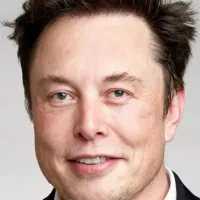
Elon Musk is a prominent businessman and entrepreneur recognized globally...
Marvel Comics founded in as Timely Comics by Martin Goodman...
The United States of America is a federal republic located...
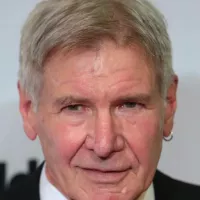
Harrison Ford is a highly successful and iconic American actor...
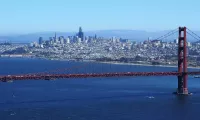
San Francisco is a major commercial financial and cultural hub...

Los Angeles is the most populous city in California and...
Trending

9 months ago Jordan Poole Claims Wizards Record, Surpassing Bradley Beal, After Rise From Teen

8 months ago Nationals stun Mets with dramatic comeback victory, powered by Stanek relief.
Daniel Stern is an American actor artist director comedian and screenwriter recognized for his comedic and character roles He gained...
1 month ago Jalen Williams' Impact: Thunder, Warriors Matchups, Dort's Future, Injury Return
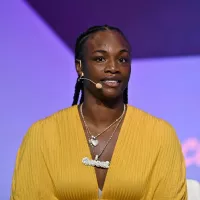
2 months ago Claressa Shields and Che Kenneally Eye Early 2026 Boxing Match
3 months ago Curt Cignetti secures 8-year, $93M contract to coach Indiana Hoosiers football.
Popular

XXXTentacion born Jahseh Dwayne Ricardo Onfroy was a controversial yet...

Stranger Things created by the Duffer Brothers is a popular...
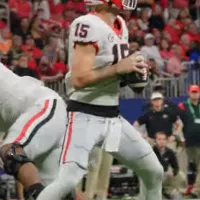
Carson Beck is an American college football quarterback currently playing...

Marco Rubio is an American politician attorney and diplomat He...

Candace Owens is an American conservative political commentator and author...

Nicol s Maduro is a Venezuelan politician who has served...


